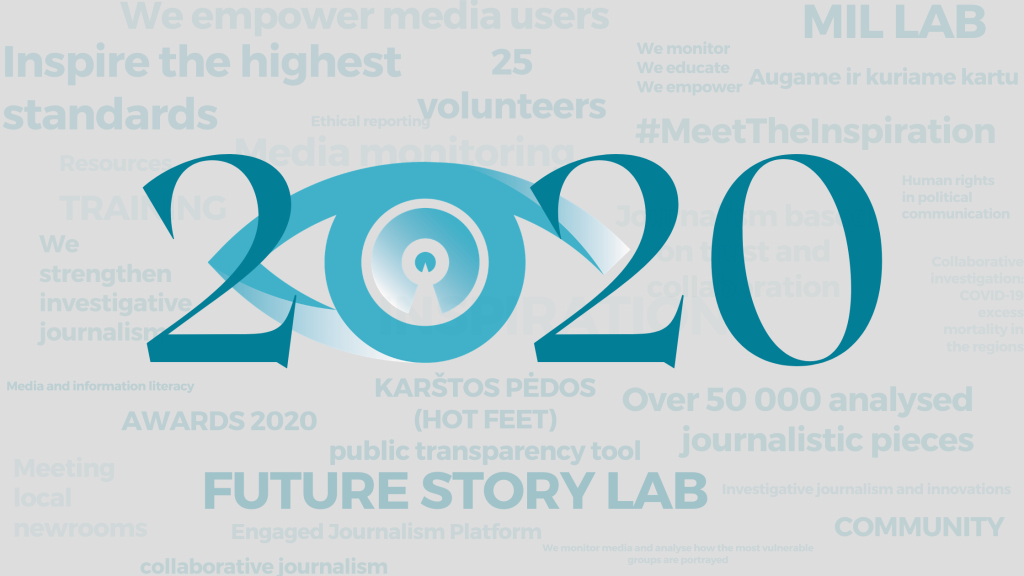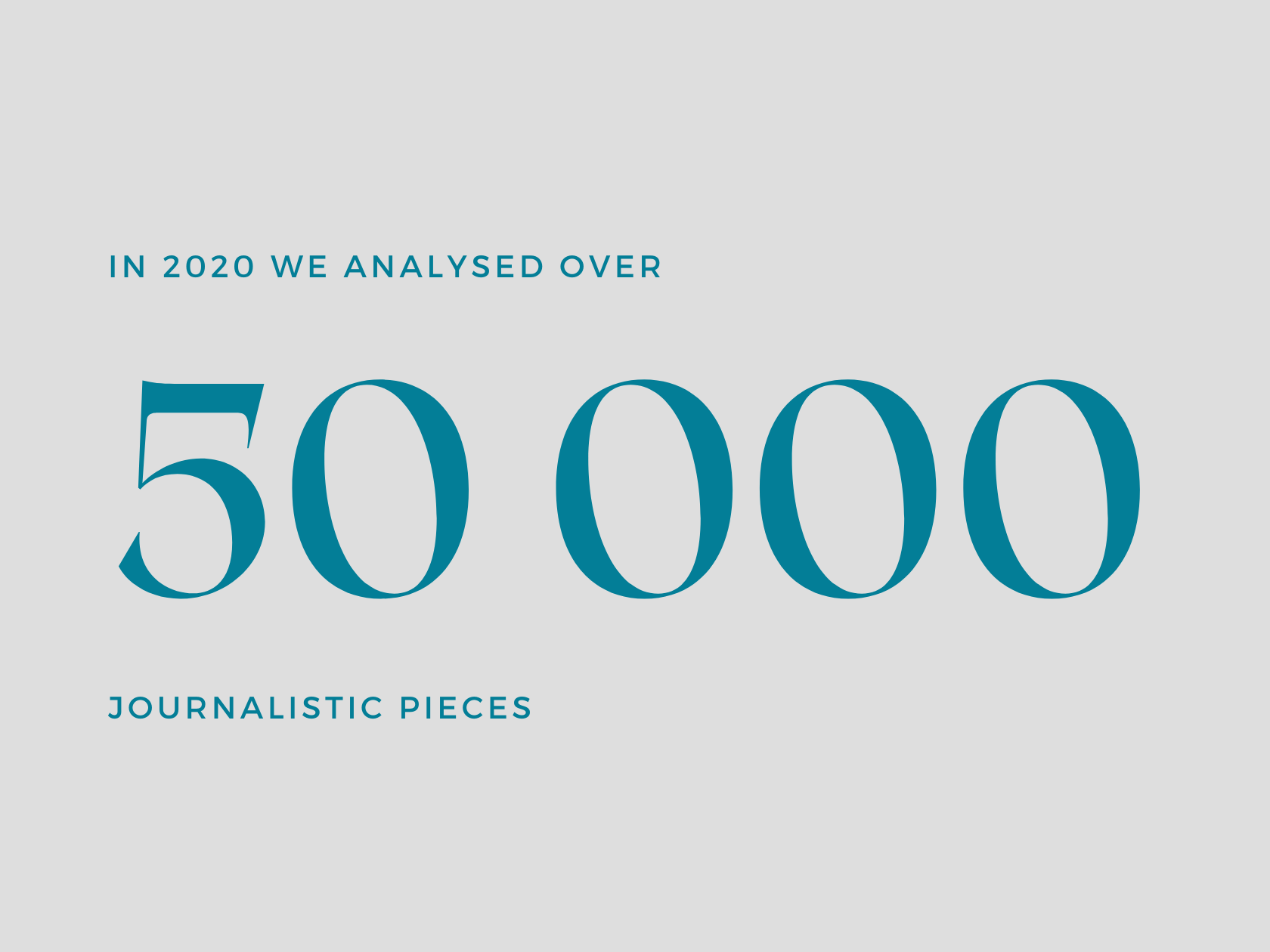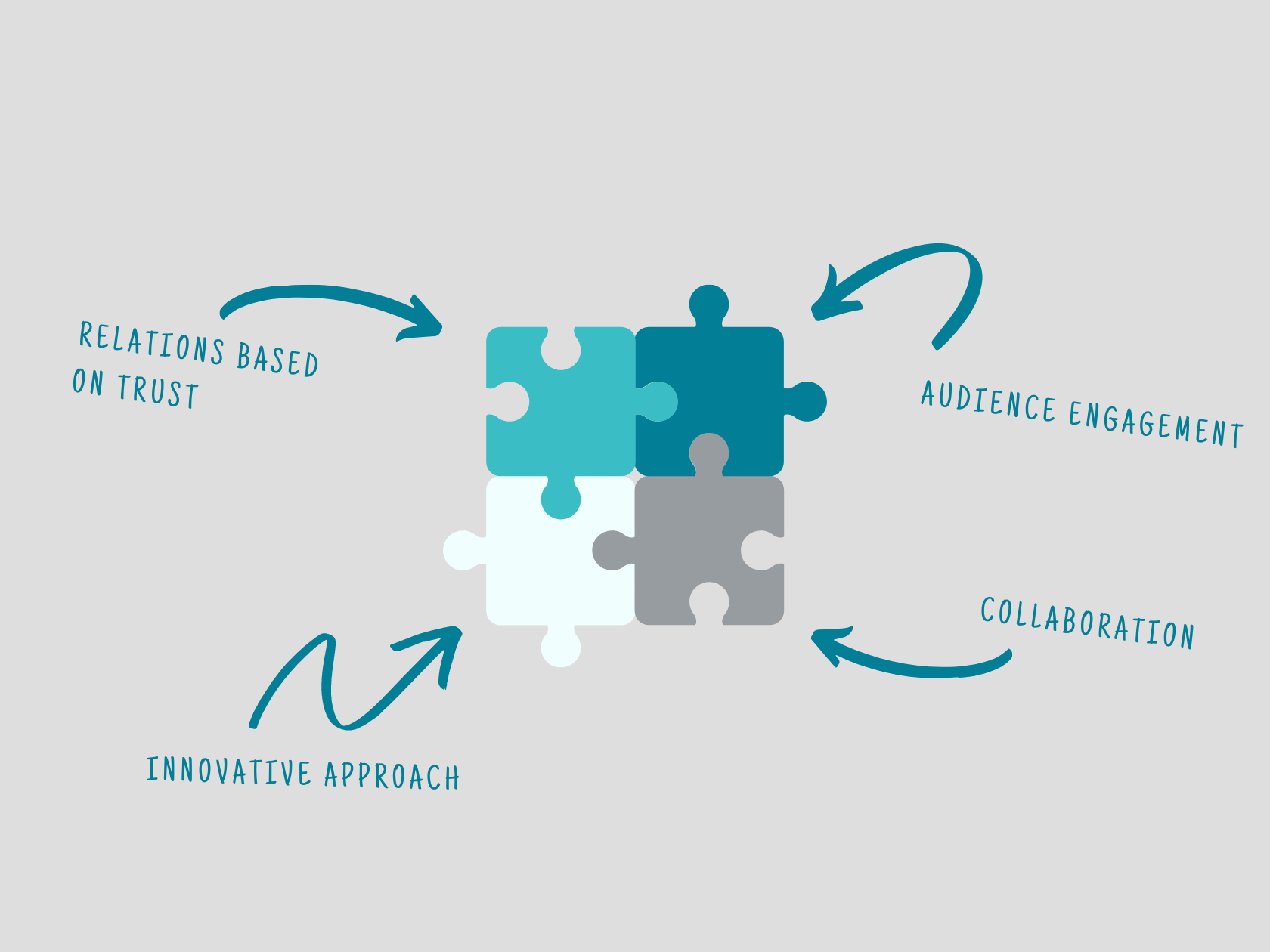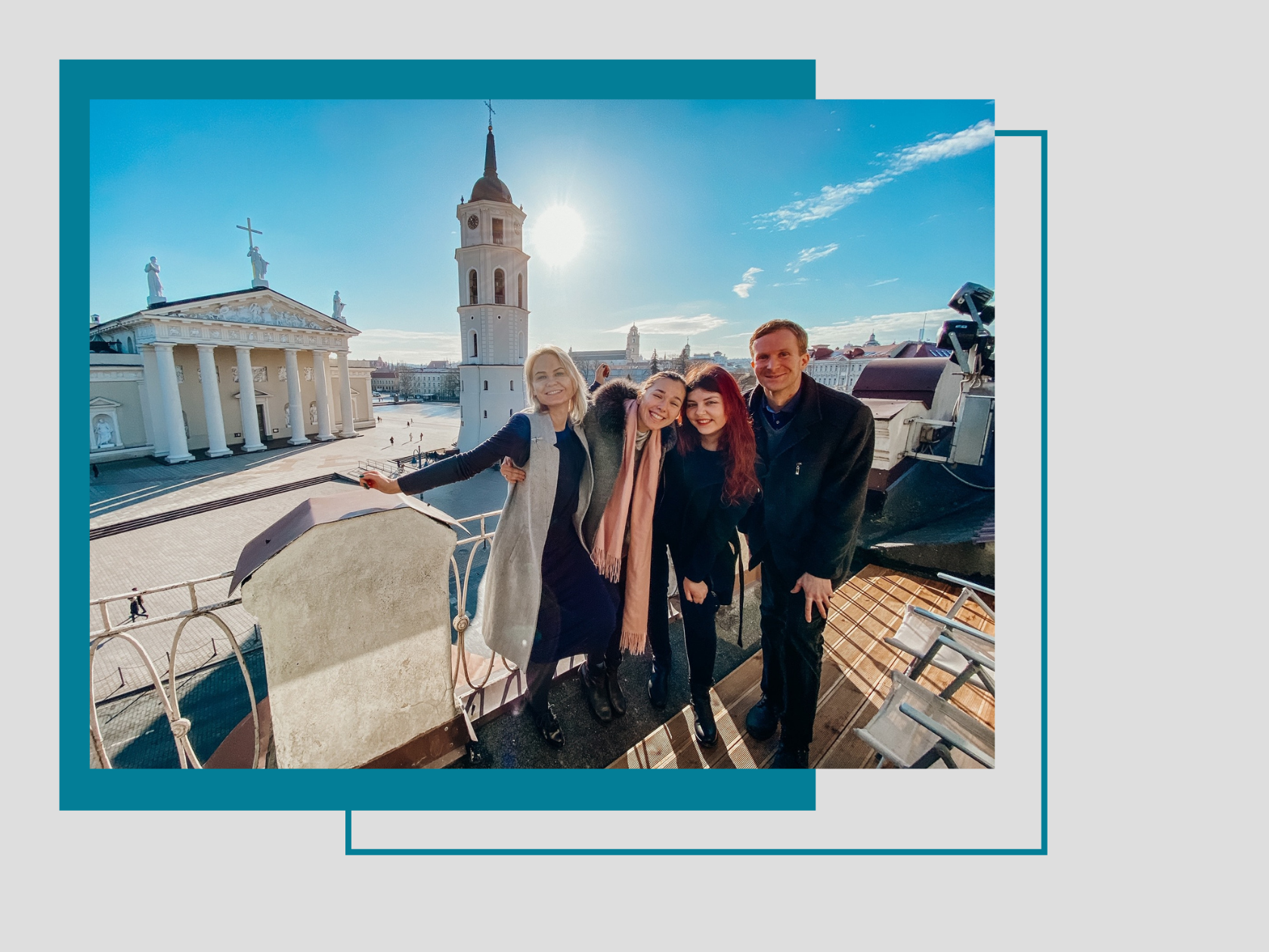2020 was a challenging year, but despite the difficulties of this year we continued achieving the highest standard in journalism, monitoring representation of vulnerable groups and building media and information literacy skills.
2020: A Year in Review | Media4Change
2020 was a challenging year, but despite the difficulties of this year we continued achieving the highest standard in journalism, monitoring representation of vulnerable groups and building media and information literacy skills.

We inspire the highest standards
We kicked-off 2020 with media awards. Five mirror-like trophies were awarded to those media organizations that heard voices of the vulnerable most often. Awards based on the results of our analysis got recognition from the Ethical Journalism Network, as well as vulnerable groups of society.
Results of the 2019 media monitoring gave us an opportunity to understand the tendencies and existing problems in media representation. It was a chance for media actors in Lithuania to take a look into a mirror, identifying main trends in the representation of mental health, sexual orientation, migration, religious and ethnic minorities, rethinking their role informing the public. This year’s monitoring results show that such event inspired some media outlets to do better representing these groups and report more ethically.

In 2020 we continued to monitor the media, noticing new trends – in the midst of the pandemic there was an increase in reporting on mental health in Lithuanian media, giving a voice to people of this group three times more. As the pandemic developed into an infodemic, we shared our insights with journalists community, recognizing their traumatic experiences reporting the pandemic and giving advice on how to cope with it.
As we identified or received reports about unethical media representation cases, we took reactive measures contacting relevant newsrooms or reporting the case to responsible institutions if needed. One of the highlights of the reactions we initiated was a commentary piece by cultural researcher Aušra Šimoniukštytė on Roma community representation on a show episode about the demolition of their local settlement. (Other reactions in Lithuanian: Tendencies and opportunities: media representation of Roma community; „Ant kilimo pas Tapiną“).
We invited regional newsrooms to meet the inspiration (#SutiktiĮkvėpimą). We organized meetings with local media outlets in Birstonas, Kaunas, Panevezys, and Palanga. During those meetings, we discussed existing tendencies in their representation of vulnerable social groups, shared insights from experts on how to ethically report on such topics. Local newsrooms were presented with an analysis of their reporting, which gave them a chance to self-assess on how they are doing in a broader context of Lithuanian media, identifying their strengths and weaknesses.

In the midst of the parliament election communication fuss, we kept human rights on our radar monitoring how human right issues were portrayed in the election campaign. Our study has shown which human rights issues received the most attention from the candidates, and what values and problem-solving ways were raised most often by politicians.


We are stepping into 2021 presenting the results of the annual media monitoring, which serves as a basis for media awards that we will host again this year. We will award media institutions that heard the voices of vulnerable groups the most in 2020. We will continue meeting with local newsrooms in different regions of Lithuania and will provide them with analyses of their reporting inviting them to meet the inspiration and reach for the highest standards, training them how to ethically report on neglected groups.
We create journalism based on trust and collaboration
In 2021 we will take another innovative step in the field of journalism with the launch of a new engaged journalism platform. Establishing such a platform we aim to create an ecosystem for regional journalists’ professional growth and provide both local and national media outlets with analytical journalistic pieces, opening doors for the audience engagement.
We have already started platform development and team selection processes. At the end of 2020, we kicked off with the first experiment – collaboratory journalistic investigation on COVID-19 excess mortality in the regions of Lithuania, which was published in national and regional media.

We strengthen investigative journalism
In 2020 we took another step forward in the area of innovations and investigative journalism – the Future Story Lab was initiated. Within the scope of this project, together with investigative journalism center Siena, we launched public transparency tool “Karštos pėdos” (Hot Feet), which provides quick and easy insights into how politicians, high-ranking civil servants, and business are interconnected. The database also visualises how national and EU funds are being used. We are extremely thankful to investigative journalism expert Šarūnas Černiauskas for his valuable insights throughout the development of this tool, which he says helps journalists save hours of work surfing through different declarations and contracts.
We are not stopping here and continue to strengthen the ecosystem of investigative journalism. In the upcoming year, the Hot Feet database will be even ‘hotter’ as we will update it with new declarations of high-level civil servants and politicians, who recently became politically exposed persons (PEPs) and are currently serving in the government. We will provide additional functionality to our registered users, letting them surf the data deeper and find shortest paths between persons, businesses or institutions.
Supporting investigative journalists we will provide financial support and award authors of the best 2020–2021 investigations. We will close the year with international awards that will recognize teams which showed the most remarkable results with their investigations.
We empower media users
The aim to strengthen media and information literacy (MIL) has led us to an innovative approach to learning and teaching MIL, which responds to the current needs of the youth. Together with partners from European Youth Press, Latvijas Universitāte, Robotikos mokykla (Robotics school), European Dialogue, Vytautas Magnus University we started building an online media literacy learning platform MIL Lab.

On this platform young media users will have an opportunity to build their media and information literacy skills, exploring different courses and topics in the areas such as gamification, social media algorithms, cybersecurity, digital citizenship and others. In 2021 we will invite youth representatives to this virtual MIL laboratory – an online course platform, where they will find 35 different courses and lessons providing theoretical knowledge and practical skills in the area of media and information literacy. The platform is being built in such a way that not only high schools but also institutions that prepare journalists would find useful learning (teaching) material. The content will include special courses responding to emerging journalism trends, and building practical investigative and data journalism competences.

We grow and create together
Even though 2020 was a challenging year, Media4Change has gone through many positive changes and welcomed new opportunities. We experienced real positive changes and moved into our new ‘home’ in NVO Avilys, since then we get to enjoy the best view of Vilnius that inspires us to create positive change ourselves. We are happy that more professionals with a strong commitment to ethical journalism and innovative thinking joined our team in 2020, and 25 volunteers helped us to monitor Lithuanian media and strengthen media landscape.
We are happy to be able to share our expertise and contribute to media policy formation in Lithuania, as Neringa Jurčiukonytė, the head and CEO of Media4Change was elected as a vice-chair of Media Council, an advisory board to the Ministry of Culture. Together with the chairman, she discussed the main challenges and goals of the council on LRT radio.
Ending this challenging year we express our gratitude to all of those who are with us on this journey. We highly appreciate your contributions, support, and commitment to the highest standards of journalism. We hope that 2021 will inspire you to create positive changes in our societies and that we will have a chance to aim for these changes working together hand-in-hand.



